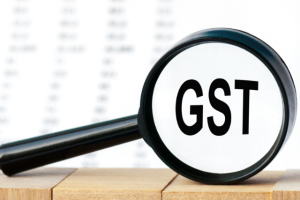Maintaining accurate financial records and implementing effective bookkeeping processes is...
Read MoreUpdating your ABN records and checking supplier's ABN registration

It is a legal requirement for every Australian business to have an Australian Business Number (ABN).
This article will explain the process and requirements of obtaining an ABN, your obligation as a business owner to maintain your ABN registrations and good practices when it comes to checking your contractors’ and suppliers’ ABN registration.
What is an ABN and how to obtain one?
ABN is a unique 11 digits identifier issued to all Australian entities.
You are entitled to an ABN if you are carrying or starting a business in Australia, this mean that you are providing products and services to your clients and not just working as an employee in someone else’s business.
The information from the registration allows customers to check that your registration is current.
Application for ABN is done through the Australian Business Register (ABR).
Firstly, before applying for an ABN, you need to decide on the business structure (sole trader, company, partnership, trust, superannuation entity or deceased estate). If you are unsure what the best business structure is for your business, you should consult with your accountant or tax agent.
The following information is required to complete your ABN application:
- Tax file number (TFN)
- If your business structure is a company, you need to obtain an Australian Company Number (ACN) or Australian registered body number (ARBN) prior to applying for an ABN. This registration is done through the Australian Securities and Investments Commission (ASIC)
- Start date for the business. This should be the date that you expect to start any business activities – for example, buying stock.
- The entity’s legal name
- Authorised contact – this can be your BAS or tax agent if they are authorised to make changes on behalf of the registered entity
- Associates’ details (these are different for each entity type)
- Business contact details including an address, postal address, email address and phone number. Your email address must meet requirements such as: being between 5 – 200 characters, contain no spaces and not start with ‘support@’, ‘Sales@’ or ‘info@’
- Business activity – the main source of income for your business, for example, construction or investment.
- Business locations – physical locations of the business.
An ABN can be used to:
- Identify the businesses registration, structure and GST status
- Claim GST credit (if registered for GST)
- Claim energy grant credit (when applicable)
- Purchase an Australian domain name
ABN obligations for business owners
There are few legal obligations you must comply with if you have an ABN:
- Lodge tax return – Tax return needs to be lodged even if your business is generating less then the threshold amount or running at a loss.
- Updating you ABN details – You need to inform the ABR within 28 days of you becoming aware of any changes to your ABN details, for example, change of the business’s address or business activity.
Updating ABN details is important for various reasons:- ABN reflects your business activities
- You are ready for new government services when they become available
- Government agencies can contact you in case of an emergency
- The right people have the right permissions to act on your behalf
- Keep lodgements up to date – Depending on your business GST status, you need to make sure all lodgements including BAS are up to date
Checking supplier’s ABN and GST status
To check supplier’s ABN registration, use the ABN Lookup tool from the Australian Business Records (ABR) website.
There are a couple of things to check:
- ABN status – should be active and not cancelled
- GST status – check if the supplier is registered for GST or not to ensure details provided on their invoice are true and correct
Checking ABN registration prior to making a payment to a supplier will help you to meet your obligations to the ATO as a business owner by not paying the full amount to an unregistered business and claiming GST credits incorrectly.
Even though it is not a legal requirement as a business owner to regularly check all contractor and suppliers’ ABN, it is a good practice and highly recommended to do so for any new supplier and once a year for all suppliers.
You can download ABN lookup report for your records and attach it to your supplier’s card for a future reference or take a note of date, ABN and GST status.
Here are some of the common issues that can arise when checking supplier’s ABN:
- ABN not provided or inactive / cancelled – If the invoice amount is over $75 (excluding GST), you will need to withhold the highest Tax rate of 47% from the supplier payment and send to the ATO, otherwise a tax deduction will not be allowed for this payment.
- Not registered for GST – In case the supplier has charged GST on their invoice and are not registered for GST, you will need to ask them to reissue and invoice without the GST, if amended invoice is not received you should pay the invoice less the GST amount and can not claim GST from the ATO.
My most important recommendations:
- Update your ABN details when changes arise
- Check ABN details for any new suppliers
- Check ABN details of all suppliers annually
- Download a copy of the lookup report for your records
Related articles
GST basics for Australian businesses
This article aims to provide you with a fundamental understanding...
Read More
